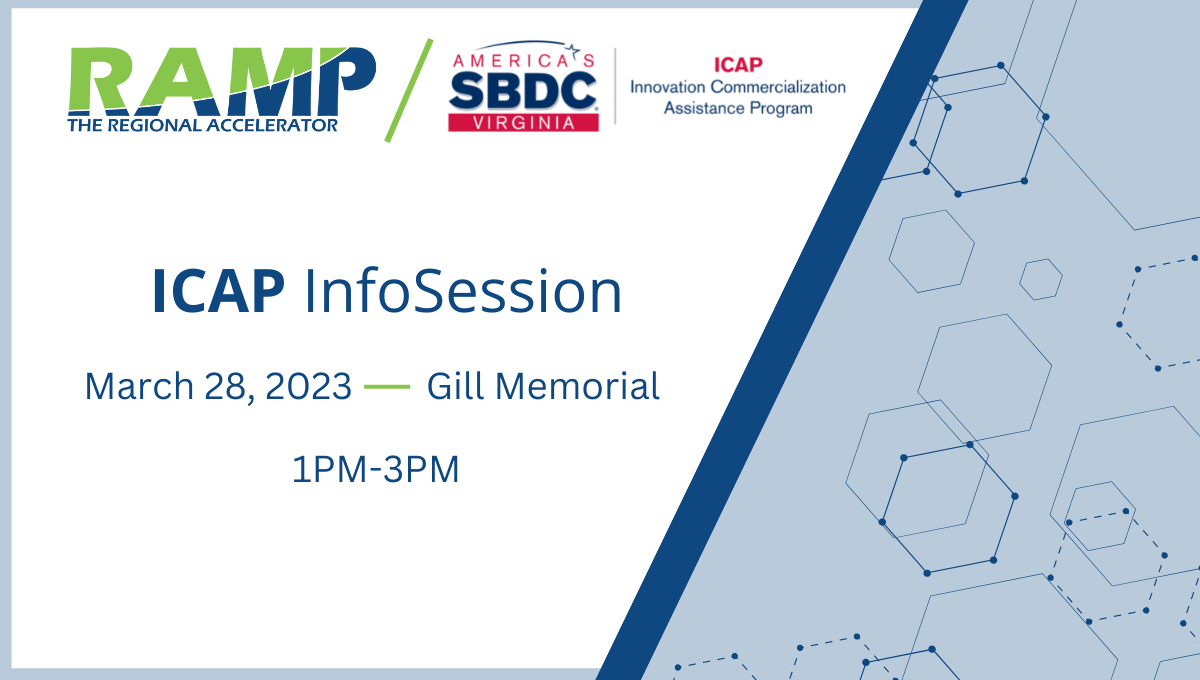Tag: innovation
Come out to meet RAMP partner, ICAP – the Innovation Commercialization Assistance Program. This will be an excellent opportunity to learn more about how RAMP and ICAP work together to […]
TechNite is an annual celebration of the Roanoke-Blacksburg region’s growing technology community and is one of the largest networking events of the year with hundreds of influential leaders in business […]
The Union Innovation Challenge is an opportunity for students and faculty from all colleges and departments to develop an innovative idea for a sports & fitness product, service and/or technology. […]
The Roanoke Times recently featured comments by Michael Friedlander, PhD, from our latest Tech and Toast: “Virginia Tech is talking to large pharmaceutical firms about cooperating with the university on […]
CEO Insights is a new series on the RBTC blog that features technology and business perspectives from the RBTC President and CEO, Jonathan Whitt. When we think of saying goodbye, […]
Robert Scoble: I’m seeing signs that the flow of talent from small town America to Silicon Valley is reversing...
